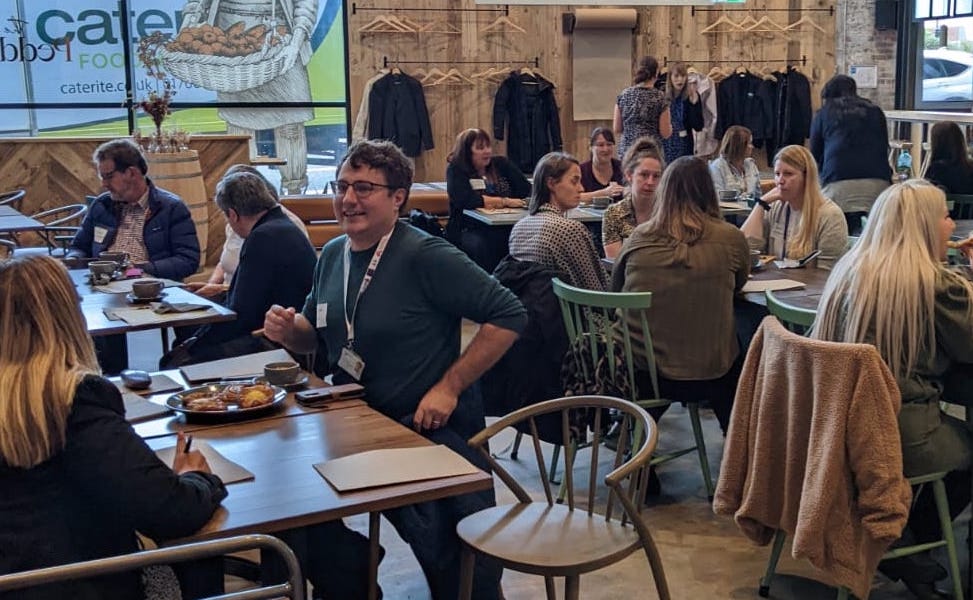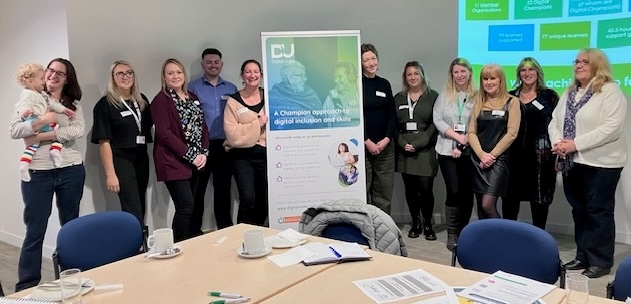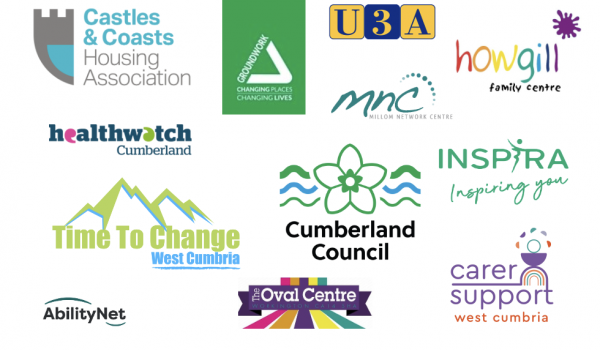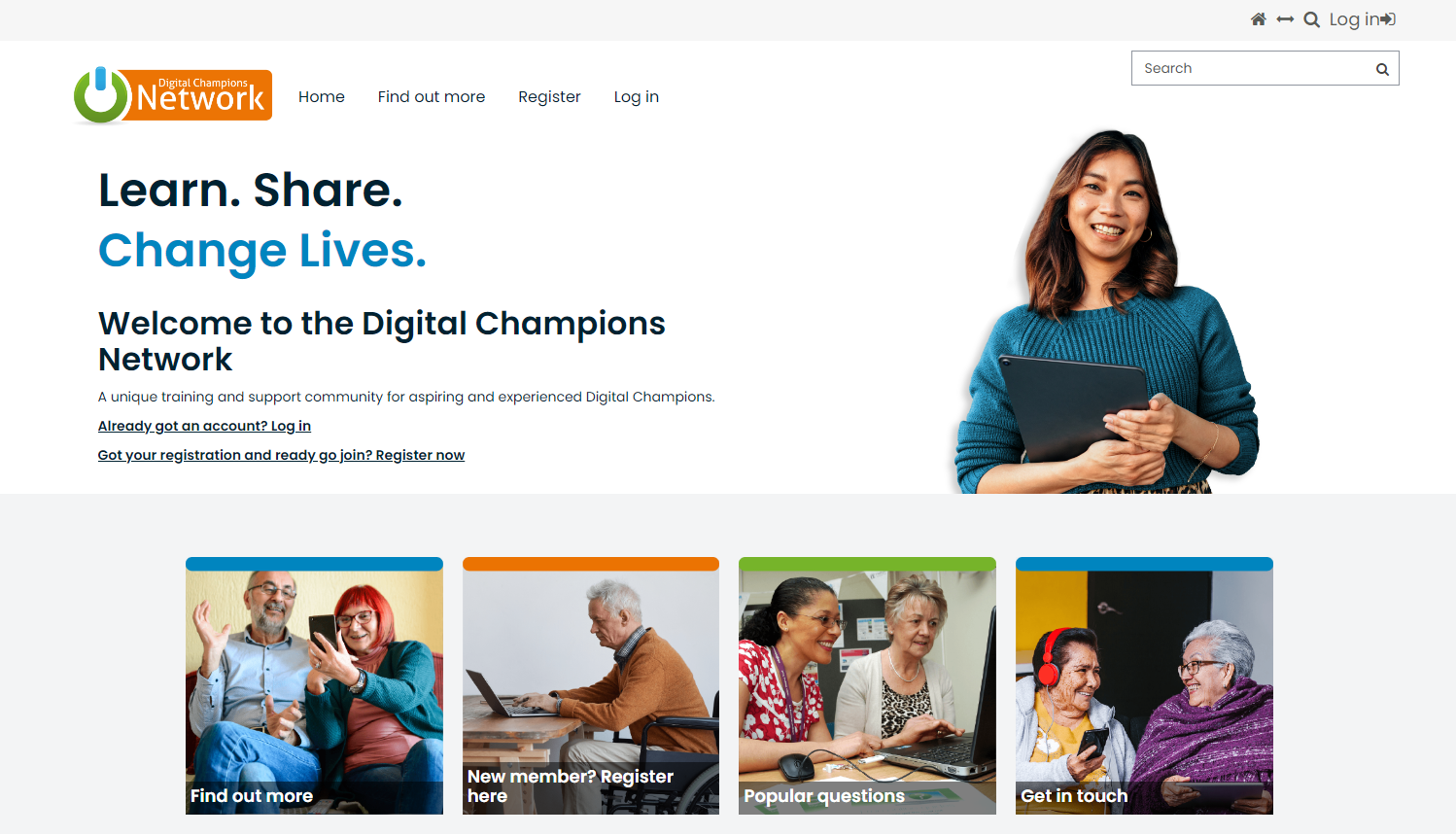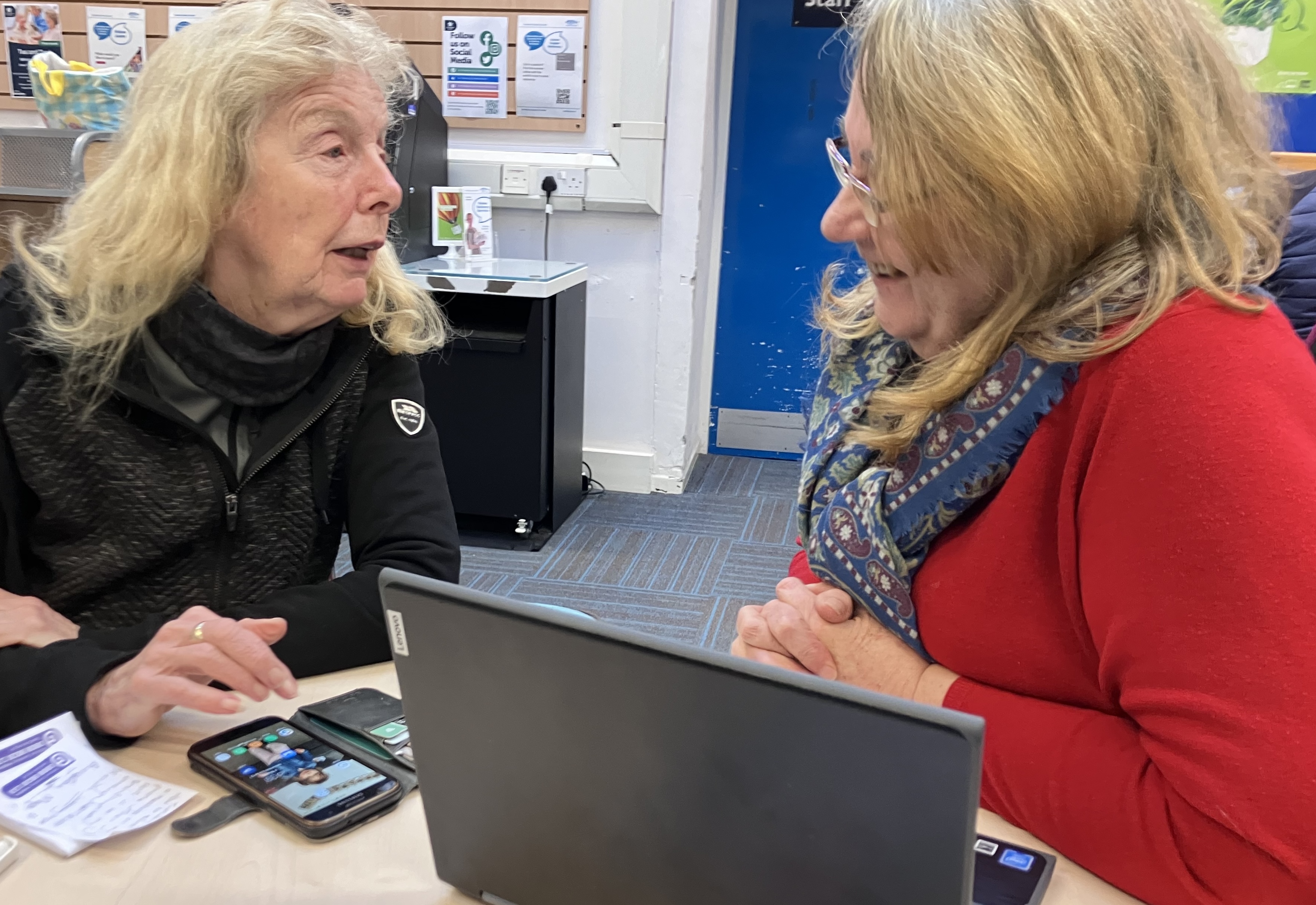Let’s Get Digital, West Cumbria (LGDWC) launched in Spring 2022. It's funded by the technology consultancy Capgemeni as part of a wider social impact programme. Its mission: to help local organisations set up and run Digital Champion programmes that would help people learn vital digital skills. At the end of the first year, a detailed impact report looked at what we had achieved and learnt. Here's the headlines...
Why set up a network?
We know that the key to helping people engage with digital technologies lies in communities and in embedding support in the places and spaces they already know, delivered via people and organisations they already trust. So setting up and supporting a network of existing organisations is a much better way to make an impact than trying to set up something completely new.
LGDWC motivates and supports organisations to recruit, train and run local Digital Champions. These Champions are ‘trusted faces in local places’, who help their neighbours, friends, colleagues and others in their communities to engage with the digital world.
Getting going...
In the project's first year, Sarah Jewell, our project lead in West Cumbria, had three main strands of activity: community networking; helping organisations find and train Champions; and support to provide digital skills help...
1. Community Networking
Sarah made connections with 20 plus local organisations, fostering connections and encouraging collaboration. She made friends, went to meetings, listened to concerns, looked for funders and suppliers for extra kit and connectivity, held meetings with everyone interested (sometimes with babies!) and spread the word about digital inclusion. Lots of organisations already had digital on their radar, others were new but interested… Her goal was to understand local challenges and encourage organisations to set up Digital Champions projects.
2. Recruiting organisations and training Digital Champions
Recruitment is a two-step process. First, get organisations onboard and clear about how digital inclusion will help their service users. Then when they're ready, support them as they start reaching out to individual volunteers, and get them training and helping learners.
In year one, we signed up 12 organisations (with three more joining by Summer 2024).They included organisations like local libraries, the University of the Third Age, charities, social enterprises and housing associations.
Finding Champions - a continuing challenge
Though we beat our targets and signed-up more organisations than we expected, we had fewer Champions coming through as volunteers. In the report, we try to tease out why....
Recruitment is always a challenge for voluntary organisations (and there's more about the art of recruiting and managing volunteers here).
A extra hurdle for the organisations Sarah worked with in West Cumbria was a simple lack of people in the community with the time and personal resources to be able to volunteer to help others.
This is a common theme in areas of social deprivation. It’s exacerbated by the rural nature of West Cumbria and the poor transport links.
And there are already high levels of existing demand on community and voluntary organisations (as well as on statutory services and welfare) - so finding Digital Champions can feel like one task too many for some organisations.
3. Helping Champions provide digital skills support
Once the organisations had got volunteers on board, they started training. All organisations and Champions got free membership of the Digital Champions Network, with access to the courses, learning and regular support that brings, as well as project management tools.
This core training was backed up by extra support from Sarah, helping organisations solve specific problems (like finding kit, for example) once their Champion sessions started. And by bringing organisations together to share problems and ideas and find common solutions.
We got great feedback from Project Managers and Champions about how useful they had found it.
Please keep the DCN resources coming! The information about what is happening with digital technology and the ideas for sessions are so helpful, especially for us volunteer Champions who don’t have any other networks to draw on.
Project Manager
University of the Third Age
Helping Beneficiaries
The digital skills help that the projects provided covered all the main areas of the "Essential Digital Skills for Life" and ranged from transferring photos to managing email, setting up screen readers and finding out about keyboard shortcuts.
This is Pat from Ability Net (in red) at a Tea and Tech drop in at Whitehaven Library with learner Elizabeth. Together they're working out how to slow down YouTube videos so Elizabeth can watch a drawing tutorial.
We have great anecdotal feedback from other beneficiaries on what they learned and it's always nice to remember what it's all about....
The main difference is that I started online banking. I did not want to, I felt forced into it due to the demise of all the local banks, and the difficulty of getting through on the phone. I don’t think I would have attempted that without knowing I could get help from the DC.
End Learner
West Cumbria
I have learned to use a mobile phone. I feel much safer now I know I can contact people wherever I am. Without the help from the DC I am sure I would not have got going with it.
End Learner
West Cumbria
Core Lessons
We learnt a lot! Some of our big lessons include:
- Work local. Every area has its own set of challenges. Understand those and tailor what you offer around them. For example, West Cumbria doesn't have many venues with good broadband and wifi. This is just one reason why you need to...
- Look at the whole package. We're digital skills specialists, which informs our initial approach. But Sarah found that you have to help with "the triangle" - data, devices and skills - if organisations are going to be empowered make a difference.
- Fill gaps & network. Just as every area has their own challenges, they also have their own strengths and existing organisations and community groups who know their ground. Don't try and duplicate or dictate! Support existing organisations to do what they do best and co-ordinate collaboration where possible.
- Help find volunteers. This is such a crucial one for everyone: As one Project Manager put it, "volunteers are like gold dust! It is just such a struggle to recruit people and then to retain them." In stage 2, we're also thinking about how we use our tools to help organisations retain volunteers - for example giving them their own community area on the Digital Champions Network.
- Think broad and business: traditionally, digital inclusion has been seen as the remit of the public and third sector. But business has a responsibility, a role and increasingly an appetite to help. Our work with Sellafield Six puts us in a good position to reach out and bring in volunteers and support from across the business sector. And as a next step in 2024, we're looking at how we can stimulate employee volunteer support for organisations and projects.
What's next for this social value programme?
Capgemini fund this project as part of the Sellafield Social Impact Strategy, SiX which is creating transformational change in the area.
We've been working in partnership with Capgemini for years. They have a long term commitment to tackling digital inequality and we created our Inspire course together. Following on from this successful first year, we're delighted to say they committed to another year in West Cumbria and they have extended the project with a sister project, Let's Get Digital, Durham.
Next in Cumbria?
What's happening now with the project
Public/ private partnerships
Hugely beneficial if you do them right.
DI and the private sector
How we work with businesses to make a difference
